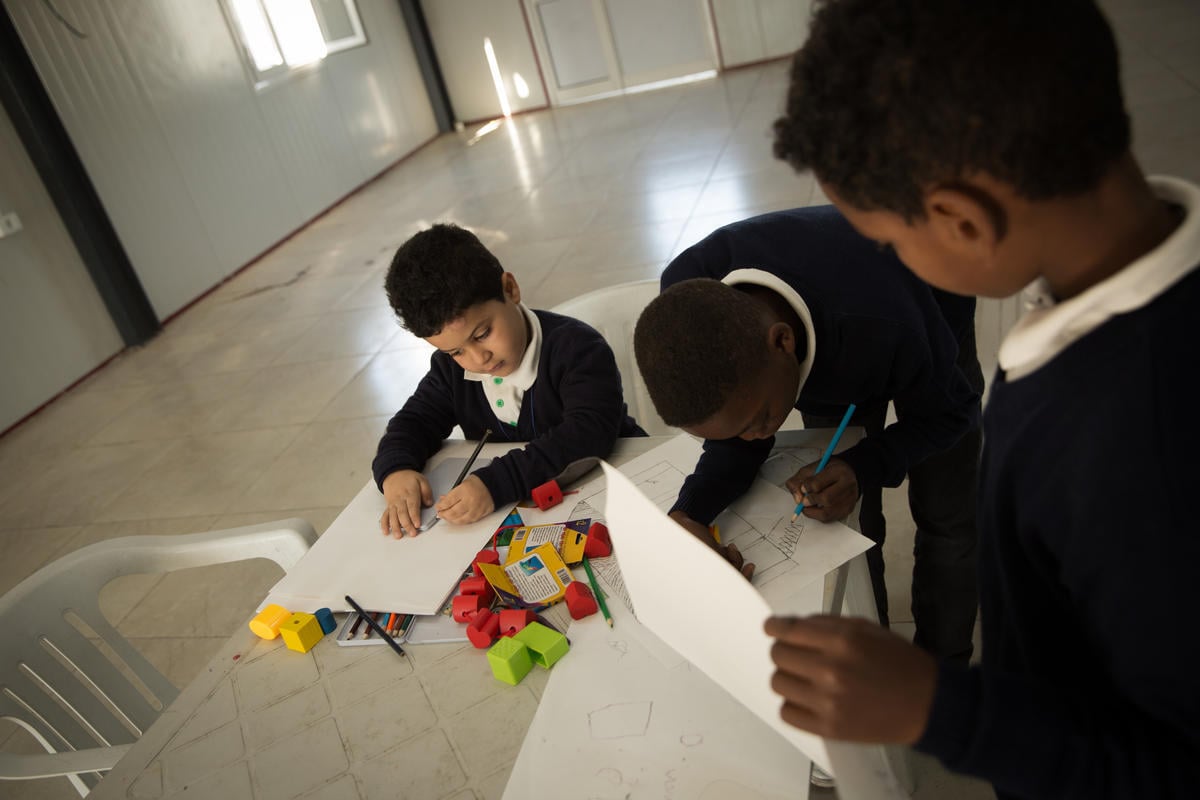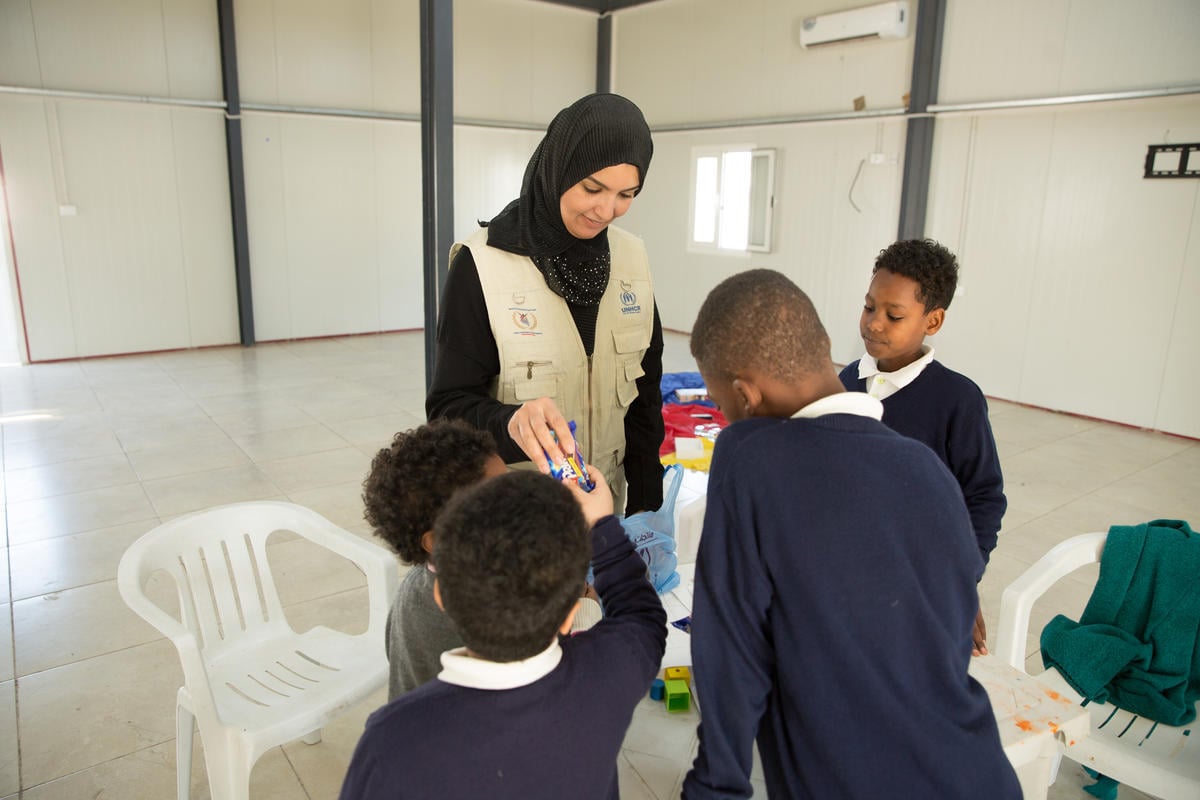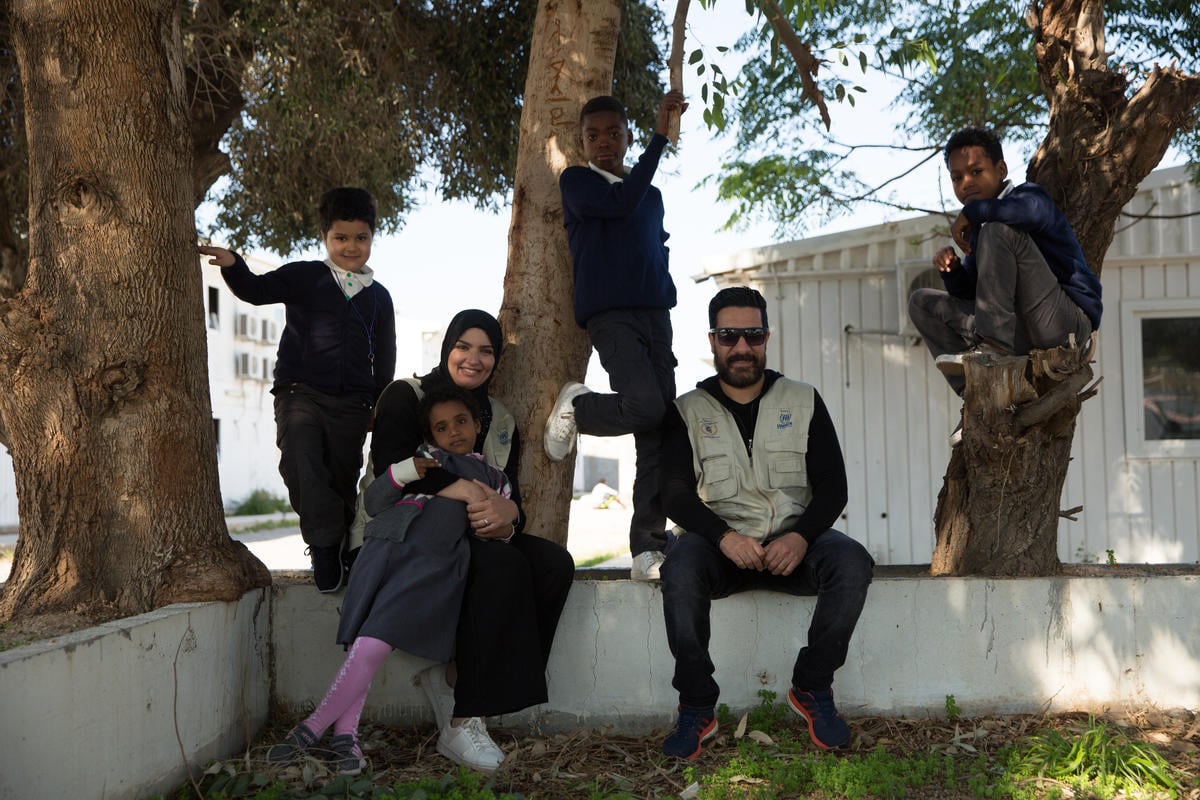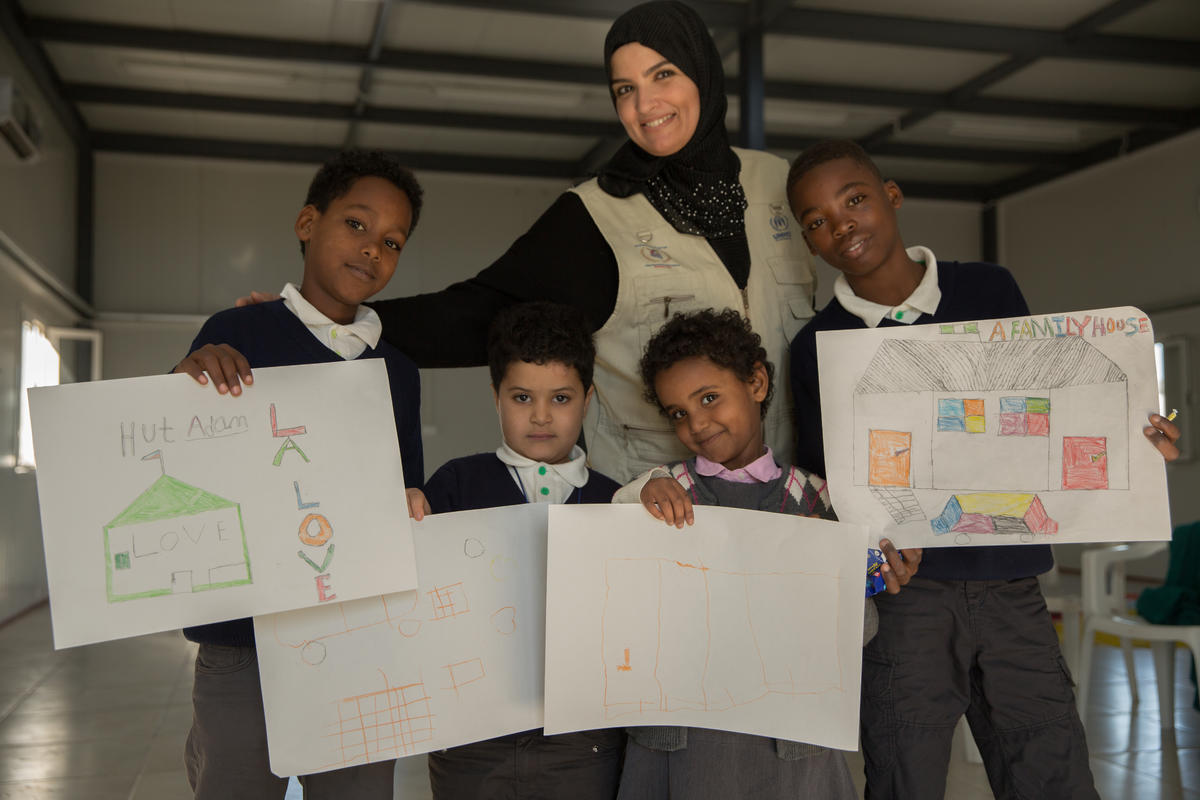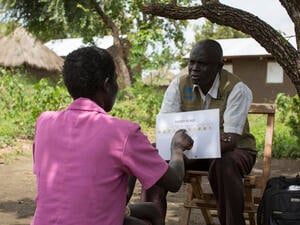The challenge of helping child refugees in Libya overcome trauma

The challenge of helping child refugees in Libya overcome trauma
Suicide attempts, aggressive behaviour, sleep disorders and bedwetting – these are just some of the symptoms displayed by many young asylum seekers and refugees in Libya who have faced violence and suffering at home as well as during their difficult and dangerous journeys.
Children and their families have also often experienced or seen shocking levels of violence since arriving in Libya, which has suffered widespread conflict and instability since a 2011 uprising to overthrow former leader Muammar Gaddafi. Many have witnessed things that no child should ever see, leaving them highly stressed and anxious.
UNHCR, the UN Refugee Agency, supports activities to help refugees and asylum seekers address their mental anguish. One programme in the capital Tripoli was specifically designed for children at the Gathering and Departure Facility (GDF), which was established as a transit centre for refugees and asylum seekers awaiting evacuation flights out of the country.
At a recent session, where youngsters were invited to draw pictures about themselves and their hopes for the future, one young girl mimics a boxer’s punches as she plays. “This child, a cute little girl, told us she wants to be a wrestler,” said psychotherapist Nadia Tabet, who works with UNHCR’s local NGO partner in Tripoli, LibAid.
"She is full of bad memories."
“We were surprised. When I asked her ‘why?’, she said: ‘I want to hit all those who have hit us’. This reflects the injustice she suffered.”
After fleeing Eritrea, the youngster and her mother had spent more than a year in Zintan detention centre, one of 16 active official detention centres in Libya, run by the Directorate for Combatting Illegal Migration (DCIM), which falls under the Ministry of Interior. UNHCR managed to secure their release, taking them to the GDF in Tripoli pending evacuation.
“She used to wake up at night crying. Her mother brought her to us,” Tabet explained. “The girl used to witness people fighting at night in the detention centre … she had internalized this violence. She is full of bad memories. We are trying to treat the psychological traumas they’ve experienced and modify their violent behaviour.”
In 2019, UNHCR, together with LibAid, started a psychosocial programme at the GDF trying to provide some normalcy and hope for many formerly detained youngsters. Other support programmes are available for adults at the facility as well as at UNHCR’s Community Day Centre located in another part of the city.
Libya is not a signatory to the UN Convention on Refugees. Refugees and asylum seekers are regarded as illegal migrants. They can be subject to arrest and detention, especially those who have been intercepted at sea by the Libyan Coast Guard while trying to cross the Mediterranean. They often languish in detention for months, or even years. There is no judicial review process, and those held often face abuse, torture and sexual violence.
In addition, many children may have come to Libya via routes controlled by human trafficking gangs, where violence, exploitation and abuse are not uncommon.
The support programme for children, funded by UNHCR, targeted youngsters aged five to 12 years old. It provided a safe space where they are encouraged to express themselves, take part in play activities that take their minds off the violence they may have witnessed and interact socially with peers. Books and toys were provided for the activities.
“Violence is a general problem in children here,” explained LibAid’s Jamal Bashir, head of psychosocial support programmes at the GDF. “In the programme, we worked to improve behaviour.”
“We tried to create routines for them to bring a sense of normalcy … because they have not had the chance to live a normal life.
"Everyone died."
Most of the youngsters have also lost out on schooling – either breaking off their studies when they left home, or in many cases never having attended classes at all. This can also be an issue causing them a high degree of stress – the knowledge they have missed out on opportunities for a better future.
Children clearly enjoyed attending the sessions, opening up about their family experiences in the safe environment it provides. One nine-year-old boy, Mohammed*, told the psychotherapist that he does not like war, explaining that his mother and brother were both killed.
“We want to go to Europe … because everyone died,” he said. “Now it’s me and my dad only.”
Parents have seen positive results from the programme, reporting their children are calmer and more motivated. Yusuf*, a single parent following the death of his wife, said he had seen improvements in his son since he began attending.
“We’re very happy with the programme,” he said. “Before, my son had more aggressive behaviour, but now he behaves normally and respects everyone.”
"There's clear sadness in all the kids that are here."
LibAid’s Bashir said that when they began the new programme, children were so keen that they began turning up an hour early for the classes. “We see the children are passionate; this is something new for them.”
“The poor conditions they grew [up] in, the trauma of the journey – it all affects them,” he added. “The children are just observers who see what happens. You notice that there’s clear sadness in all the kids that are here. They can’t express it and let it out. That’s why we created these activities: to help.”
Due to worsening security in Tripoli, the psychosocial programme for children is being put on hold for the time being. UNHCR hopes to be able to find new alternatives to continue this important work.
*Names have been changed for protection reasons.

